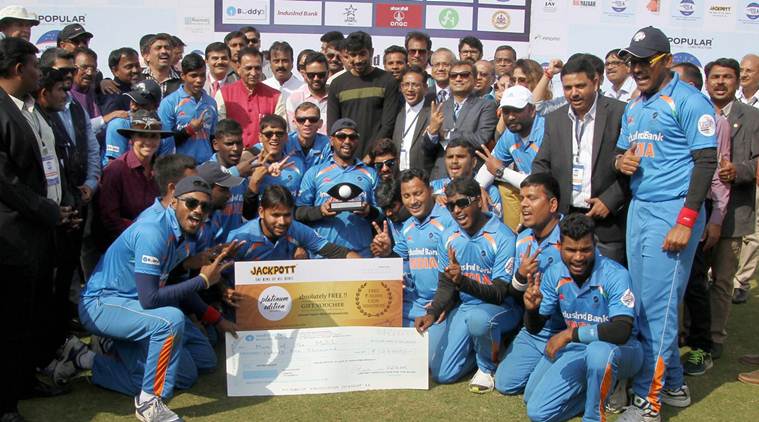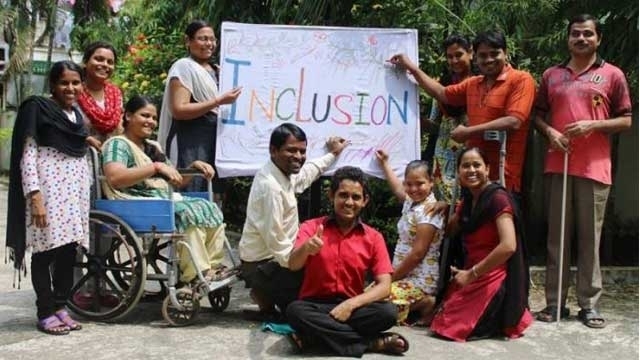According to the Census 2011, there are 2.68 crores (2.21%) persons with disabilities in India, though according to some estimates, the actual number may be as high as five per cent of our population. However, there has been a paradigm shift in the approach towards the persons with disabilities (PWDs) during last some years. The government’s focus now is on rights based economic empowerment of PWDs as we observe the International Day for Persons with Disabilities on 3rd of December this year.
In India the first step in moving towards rights based economic empowerment was taken when Persons with Disabilities (Equal Opportunities, Protection of Rights and Full Participation) Act of 1995 came into being. The second was India’s ratification of the UN Convention on Rights of Persons with Disabilities (U.N.C.R.P.D.) now a new bill introduced in Rajya Sabha that has provisions for accelerating this process, awaits nod from the Parliament.
Now all eyes are on the Rights of Persons with Disabilities Bill which will replace the 1995 Act. The provisions in the Bill fulfil a number of demands of the Disabled Rights Groups and Activists who have been pressing for its early passage in the parliament.
Some of the significant provisions of the Bill include, making accessibility a mandatory requirement under the law, number of beneficiary categories proposed to be increased from 7 to 19, entitlement of some benefits to persons with at least 40% of a disability .It also provides disabled friendly access to all public buildings, hospitals, modes of transport, polling stations, etc. Significantly it also stipulates, violation of any provision of the Act be made punishable under the law.
Apart from the proposed legislation, government has taken several measures towards empowerment of the persons living with disabilities.
The campaign was launched almost a year back on the 15th of December. A flagship programme of the government, it is aimed at achieving universal accessibility of persons with disabilities and to create an enabling and barrier free environment. It is focussed on three objectives, accessibility of built up environment, transport system accessibility and accessibility of knowledge and ICT ecosystem. According to Department of Empowerment of Persons with Disabilities, audit of 1092 buildings out of 1098 across 31 cities has already been completed in order to convert them into fully accessible buildings. .
In August this year, the government launched ‘Sugamaya Pustakalay’ an online platform where a person with disabilities can access books in the library at a click of a button. He can read the publications on any device of his choice mobile phones, tablets, computers, DAISY player or even in braille using refreshable braille displays. He can also request for a braille copy through member organizations that have braille presses.
The Secretary General of World Blind Union and President of All India confederation of the Blind, Mr A.K Mittal is of the view that situation with regard to availability of basic writing material and mobility aides like canes for the visually challenged has improved significantly. Appreciating the government initiative with regard to liberal grants related to production of books in Braille, he told this author that if the scheme for modernization and setting up of new Braille presses is implemented properly this will increase and ease the production of books.
The government proposes to roll out a web-based unique disability identification (UDID) card. The initiative will help in a big way in ensuring the authenticity of disability certificates and eliminate the hassle of having to carry certificates for different purposes, as various details, including the type of disability, would be made available online.
The government has also initiated scheme for pre matric, (46000 slots) post matric (16650 slots) and the students seeking top class education (100 slots).
A National Action Plan for Skill Training of Persons with Disabilities was launched last year. The Department of Empowerment of Persons with Disabilities in collaboration with NSDC, proposes to set an ambitious target of skilling 5 lakh persons with disability in next 3 years (1 lakh in first year, 1.5 lakh in second year and 2.5 lakh in third year). The Action plan is aimed at skilling 25 lakh persons with disabilities by end 2022.
The Department organizes Camps to distribute aides and appliances to the persons with disabilities (Divyangjans). Prime Minister Narendra Modi distributed Aids and Assistive Devices to more than 11000 Divyangjans at one such camp in held September in Gujarat. Similar Camps have been organized across the country to meet the needs of Divyangjans residing in remote areas.
More than a decade after the first law on persons with disabilities came into effect, despite special recruitment drives from time to time, by government’s own admission only a little over one per cent of the vacancies could be filled against three per cent reservation in jobs in government. Over 14,000 identified vacancies remain to be filled. The backlog for the visually challenged is about ten thousand. A report by the International Labour Organization in 2011 said that over 73% of the disabled in India are still outside the labour force and those with mental disability, disabled women and those in rural areas are the most neglected.
More than half of the children with disabilities are out of school despite the fact that the government has taken a number of steps to encourage these children to be admitted to schools. Activists hope that if the Right to Education is implemented in letter and spirit, this situation is likely to improve considerably.
Activists also plead for enhanced research and development with regard to aids and appliances for the PWDs to ensure that their accessibility to various facilities is made easy.
With the fast-tracking of several schemes and programmes which have been initiated during last two years, the objective of creating an inclusive and equitable world could become a reality.
Source : The Echoe of India , 7th Jan 2017



